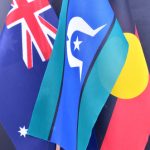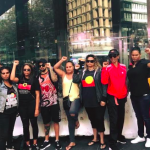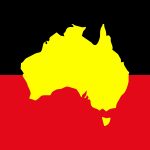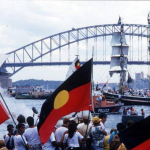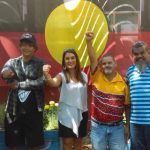First Nation Economic Independence: An Interview With the Treaty Council’s Alex Wymarra
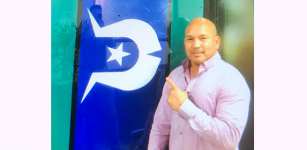
Australia is the only settler colonial nation not to have entered into treaties with the First Nations of the continent. Indeed, it wasn’t until the 1992 High Court of Australia Mabo decision that the nation actually recognised Indigenous peoples’ prior claim to the land.
The Mabo decision led the Keating government to pass the Native Title Act in 1993. The purpose of the legislation was to establish a system that would recognise and protect the native title of Aboriginal and Torres Strait Islander peoples.
But, native title laws have been watered down over time. The 1996 High Court Wik decision ruled native title can coexist with the rights of a pastoral lease. But, the court also found that when there is a conflict of interest, the leaseholder’s rights always prevail, and native title is extinguished.
Last year, the Turnbull government rushed through a native title amendment bill that overturned a recent Federal Court decision that put the process of establishing an Indigenous land use agreement more in line with Indigenous decision-making processes.
Dubbed the Adani Bill, it established a system whereby only a majority of traditional owners have to sign off on an agreement to use their land and waters, rather than all native title claimants. These laws effectively gave the green light to the agreement for the Carmichael coal mine.
An independent future
And it’s due to this lack of treaty-making in Australia, along with the general weakening of the position of Indigenous people, that a group known as the Treaty Council has formed with the aim of establishing pathways to economic independence for the Indigenous nations it represents.
The Treaty Council is comprised of a number of First Nations business and media consultants, along with international corporate investors and constitutional legal experts. And it has a focus on facilitating economic treaties between Indigenous groups and business interests.
The aim of the economic treaties is to financially empower these Aboriginal and Torres Strait Islander communities without the involvement of government, which in turn will lead to a more autonomous and independent life for future generations.
Economic treaties in action
The Treaty Council organised an economic treaty agreement between the Gudang-Yadhaykenu people of Far Northern Queensland and former Macquarie Group banker Bill Moss in February last year.
The deal involves the local native title holders leasing out 360,000 hectares of land in the northernmost region of Cape York to establish tourism and agricultural businesses. This will allow for a portion of the profits to be funnelled into Indigenous trusts for education, health and employment.
Another first of its kind international agreement gained national attention last October. It involved the Wik people of Aurukun in Cape York entering into an economic treaty with Legions Wealth: a group of Chinese corporate investors. The deal involved the export of felled wood to make furniture.
Sydney Criminal Lawyers® spoke with Alex Wymarra, director of the Treaty Council, about the interest the council has been garnering of late, it’s decision to recognise the International Tribunal of Natural Justice, and the importance of an independent future for Indigenous nations.
Firstly, when we last spoke to you in October last year, the Treaty Council had just held a two day forum that involved members from seven Indigenous nations meeting in Townsville to discuss possible treaties that would have a focus on rejuvenation and preservation of their land and provide economic independence for these nations.
Mr Wymarra, what has the Treaty Council been up to over the last 12 months?
Since the meetings a lot has happened. There has been a groundswell of interest and support from many other Indigenous nations, including the seven already under agreement with us, who of course have a great interest in creating their own economic independence.
First Nations people are looking to gain their own empowerment and are joining forces to work together to break free of the constraints currently being exerted upon us by the various governing bodies that operate in this country – federal, state and local.
Surely, there are way too many levels of government in this country given the current technologies available.
These nations have sought assistance and have formed agreements with the Treaty Council to work with them and utilise the ideals and the resources of the International Tribunal of Natural Justice (ITNJ) to enable economic independence through economic treaties with international entities, including international trade deals with different countries.
Many of the 500 Indigenous nations through the Treaty Council are open for business.
Last month, at a meeting in Melbourne, the Treaty Council passed a resolution recognising the jurisdiction of the International Tribunal for Natural Justice at Westminster. For those who are unaware, can you explain what this institution is?
The ITNJ is an international tribunal formed to apprehend the abuses and tyranny of systems and institutions, restore truth and reason to the delivery of justice in the world, and uphold natural justice as the foundational tenet off human expression beyond the artifice of borders and boundaries.
In short, the Treaty Council and the ITNJ are working to give voice to the voiceless.
Many Indigenous nations are making applications through the Treaty Council seeking to have their declaration of independence recognised by the International Tribunal for Natural Justice, an international tribunal as opposed to the current National Native Tribunal.
The Treaty Council has an extensive network utilising the skills of international constitutional lawyer Sir John Walsh of Brannagh, as well as media, compliance, security, integrity, health, education, legal, banking, engineering, IT and other capabilities.
We have partnerships with real estate, finance and development, research and development and agricultural capabilities to name a few.
We and our partners are active, not only in Australia, but throughout the Pacific and the rest of the world with New Earth Nation concepts through Humanitad.
Our Indigenous advisory includes cultural project monitors, marine and fisheries consultants, a senior traditional lawman/loreman, Indigenous anthropologists, media and PR to name some.
The Treaty Council recognised the ITNJ’s jurisdiction in relation to legal and human rights issues, as well as commercial disputes that may arise. What does this mean in a practical sense?
The Mabo decision for First Nations Aboriginal people and Torres Strait Islanders – when sovereignty was recognised by the highest legal system of the Commonwealth of Australia – was a landmark decision.
However, the Native Title Act has been watered down and we are obliged to come under the terms of this act when we are not even recognised in the constitution.
The government by watering down this act have, in our eyes, made the act worthless. This trickery effectively extinguished our recognised sovereignty – our sovereignty will never be ceded – by not allowing nations to be self-governed by our own chosen representatives.
And we are subject to all sorts of pointless rules and regulations. For example, when the native act applies we are allowed to hunt, fish and bury our dead. My question is: Why do we need to be given permission to do that?
We have our own Indigenous cultural laws/lores that have been recognised in the High Court. Our laws/lores have been in existence for over 80,000 years. One of our laws/lores includes trespassing on another man’s land without permission – it was this law that was evoked in the Mabo case.
With regard to the commencement of any negotiations, the UN Declaration on the Rights of Indigenous People states in Article 27 that the state has “to recognise and adjudicate the rights of Indigenous peoples pertaining to their lands, territories and resources”.
At the miner’s conference held on 3 May 2012, then prime minister Julia Gillard gave a speech defining the government’s position.
Ms Gillard said, “And here’s the rub: you don’t own the minerals. They own it and they deserve their share.” She added, “Governments only sell you the right to mine the resource: a resource we hold in trust for a sovereign people.”
The government do not own the resources. They hold the resources in trust for another people. Who are the other people?
Bob Katter stated in his 31 August 2017 address that the government looks upon the Aboriginal people as if they are little children, who do not know how to look after their own affairs, so we – the government – have taken responsibility over their land and resources in trust. We don’t own it.
This statement was made in front of medical students, Professor Gracelyn Smallwood and Professor Ian Wronski, husband of the late Maggie Grant.
In August last year, the Wik people of Cape York entered into an economic treaty agreement with Legions Wealth.
The $600 million deal involved the export of wood to China to make furniture. The trees were being cleared by mining giant Rio Tinto for their Amrun bauxite mine, which is on the lands of the Wik people.
What sort of impact has this deal had?
The momentum, hope and aspirations of the Wik people to be given a chance of economic empowerment by interested international entities by entering into commercial agreements has sadly been hampered by the Cape York Land Council’s non-Indigenous facilitators and employees.
This includes threats from the current legal team to the chosen representatives of the Wik and Wik Way people of legal action, including gaol if they did not pull out of the deal.
The National Native Title Tribunal set up for the Native Titles Act deliberately dragged out the proceedings. Then with two days remaining in the 28 day public notification period, it drafted a letter which effectively killed the deal and essentially forced the local elders and representatives to sign the letter with already mentioned threats and intimidation.
An example of the kind of intimidation tactics that were utilised were threats to create media attention saying that the recent publicity around the deal was nothing but fake news. The Treaty Council media and PR team being the main focus of this unwarranted attention.
This first of its kind international economic treaty had a focus on establishing financial independence for the Indigenous people, as well as being environmentally sustainable.
How important and necessary is it for First Nations people to establish their own economic independence going into the future?
This is all important. Without economic independence First Nations people will continue to be repressed by the actions of the radical local and state governments and regional authorities, including the land councils.
How would you say the Wik and Wik Way people are faring under the governance of both the Queensland and Australian governments?
The red tape that interested investors have to get through to satisfy the National Native Title Tribunal continues to hamper progress for our people due to regional land councils and authorities.
Statistics show that unless a project has been submitted by regional authorities and government appointed land councils they are not likely to get passed by the Tribunal.
This is the reason why we have called in the ITNJ to recognise our autonomy for self-determined empowerment.
You’re a member of the Gudang-Yadhaykenu clan. In February last year, your community entered into an economic treaty with former Macquarie Group banker Bill Moss.
How has this deal been developing over its first two years?
The momentum from many of our nations’ tribes coming together – including our neighbouring tribes Atempaya and Angamuti, who together form the Apudthama Sate nation – has generated an excitement, which results from the recognised ownership of our shared nation state area.
We are proceeding with projects including a 5 star resort hotel, eco-tourism, bottling water plant and cultural centre museum: to tell the true history of the massacres of our Gudang-Yadhaykenu ancestors by the Queensland state police magistrate Frank Jardine in the late 1800s.
Also, we have cruise ships visitation agreements, reviving Pajinka Paradise, housing projects, as well as some very exciting agriculture and aquaculture initiatives in the Gudang-Yadhaykenu area, which is one of the world’s largest land and sea areas under Indigenous ownership.
And lastly, Mr Wymarra, what’s the focus for the Treaty Council at present?
Many Indigenous nations on this continent have signed up with the Treaty Council in a confederation of united tribal nations under the council.
Agreements have been signed with the Treaty Council. And one of the many nations included are the Murray Islanders from the island of Mer. A number of families from this area are currently seeking our assistance.
This brought hope to them because it is 25 years since the Mabo decision, whereby state and regional governments have put a heritage listing and a DOGIT – deed of grant in trust – system on Murray Island. This process effectively extinguishes the sovereignty of our peoples.
Our own due diligence through our own intelligence operations has also discovered that the government has decreed the Jardine gravesite in Somerset Far North Queensland, which is on Gudang-Yadhaykenu country, as a protected heritage listed site.
This is a man who massacred 3,000 of our people. The graves of our own ancestors in that very same area have been given no recognition.


